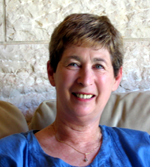By Dorothea Shefer-Vanson

JERUSALEM — The audience in the auditorium listened intently as the head of the one of the departments of the Music Academy gave an erudite analysis, with illustrations at the piano, of various aspects of Mendelsohn’s ‘Songs Without Words,’ which we were to hear later in the programme. Professor Assaf Zohar, a rotund figure whose lectures are always lively and fascinating, had just apologised for being unable to play the piano with his usual dexterity as he was still recovering from an injury to his hand – the worst thing that can happen to a musician. To my unprofessional ear, however, his demonstrations sounded as impeccable as ever.
The information elicited a sympathetic intake of breath from the audience, consisting of a cross-section of Jerusalem’s music-loving public. Just at that point the unmistakeable tones of Rossini’s William Tell overture reverberated through the auditorium. All heads turned in our direction as the lady sitting two seats away from me turned bright red and scrabbled frantically in her bag to find and silence the offender.
It took an unconsciably long time until the phone was found, and the righteous indignation of the audience soon turned to laughter as Professor Zohar expertly played the chords on the piano, then converted them into a version that Mendelsohn might have composed. Luckily for the lady concerned, the phone had not gone off during the actual concert, as that is enough to make any concert-goer’s hackles rise, and good humour could just as easily have turned into murderous intentions.
In the interval, when the subject was mentioned in passing, I tried to soothe the phone-owner’s guilt-ruffled feathers by saying that it could have happened to anyone, and that I myself had forgotten to turn my phone off (though had done so hastily after the person concerned had turned hers off). This gave the lady sitting between us, whom I didn’t know from Eve, the opportunity to sound off about her abhorrence of mobile phones, and decision not to possess one, despite pressure from her family.
While there is no disputing the fact that the mobile phone has its uses, and there is no substitute for being able to make contact when one has missed a bus or plane or is stuck in a traffic jam and will be late for an appointment, the love affair between the average Israeli and his/her mobile phone is something beyond rational explanation.
‘You’ll never walk alone’ could be the slogan of the phone companies, as wherever one looks one seems to see people walking along the street, talking animatedly – generally with sweeping hand movements – as they do so.
Recent research has sounded the alarm regarding health hazards associated with mobile phone use, but as far as I can see nobody seems to be taking much notice. In the supermarket I see (and hear) men receiving instructions from their womenfolk at home or at work as they scan the fruit and vegetables, and on buses one can catch snatches of intriguing conversations. In Israel one has the added advantage of being able to exercise one’s knowledge of various languages, although so far Amharic remains a closed book to me, even when peppered with the occasional word in Hebrew. And of course in restaurants and cafés the mobile phone chatter is incessant and loud.
It is only inside the Israel Museum, where I volunteer as a Host, directing people to the exhibits they wish to see (and most of which are currently closed, awaiting the grand reopening in July), that I am privileged to politely remind visitors that talking on mobile phones is forbidden.
*
Shefer-Vanson, a freelance writer and translator based in Mevasseret Zion, can be reached at dorothea@shefer.com This article initially appeared in the AJR Journal, published by the Association of Jewish Refugees in the United Kingdom.